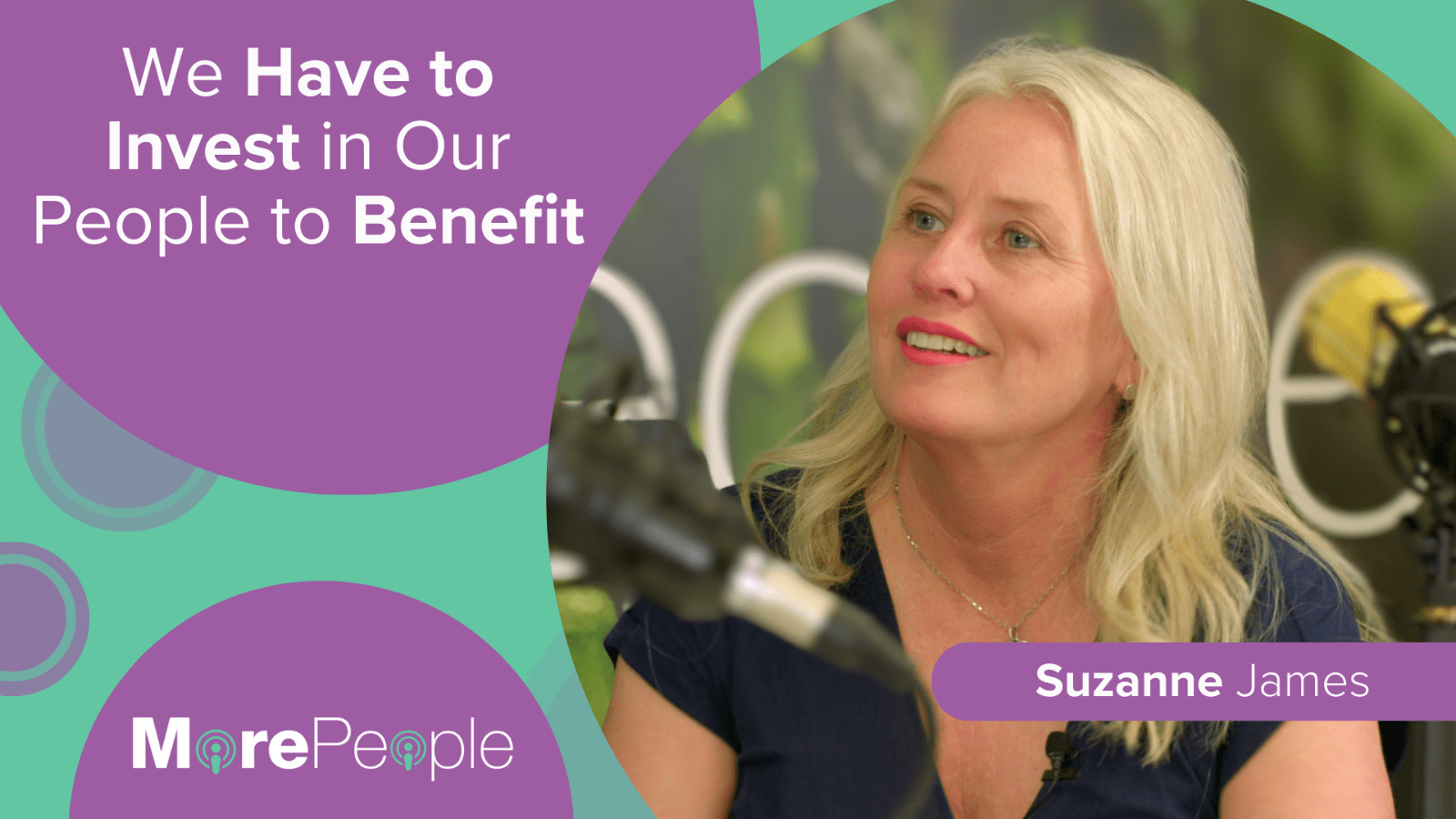
Episode 24: The MorePeople Podcast with Suzanne James
Making "Safe" Sexy: How HR is Shaping the Future of the Food Industry
Welcome to The MorePeople Podcast – where we explore the people behind the products, the strategies behind the success, and the conversations that matter in recruitment and beyond. In this episode, Richard Hanwell, Managing Director at MorePeople, sits down with Suzanne James, People and Culture Director at Fairfax Meadow, the UK’s largest catering butcher and part of the Hilton Food Group.
With more than 25 years in HR, Suzanne shares an honest and inspiring look at how the HR function has evolved, the challenges facing the food industry, and why we need to rethink everything from recruitment to retirement.
From Recruitment to HR: A Natural Evolution
Suzanne began her career in recruitment before moving into HR, a transition she admits wasn't planned but felt natural. “I like being a bit nosy,” she laughs, “but more than that, I’m passionate about people.” That curiosity and care have fuelled a career focused on enabling people to grow and develop within their roles.
HR: From Admin to Strategic Partner
Reflecting on how HR has changed over the past two decades, Suzanne says the shift has been seismic.
“It used to be all about admin and reacting to issues. Now, HR is central to business strategy. We’re shaping culture, driving engagement, and sitting at the boardroom table.”
HR is no longer the back-office function. It’s become a driving force behind business transformation, especially in talent management, succession planning, and cultural alignment.
The War for Talent: Generation Gaps and Recruitment Hurdles
One of the biggest challenges Suzanne highlights is managing a multi-generational workforce.
“The jobs of the future won’t look like the jobs of today. We’ve got to build bridges between generations, school leavers, early careers, mid-level management, and those approaching retirement.”
While the company is excelling in graduate recruitment and leadership development, Suzanne admits there’s a “missing middle” in talent, filling that layer between entry-level and leadership roles remains tough.
Changing Perceptions of the Meat Industry
Despite the growing popularity of food-tech, plant-based products, and automation, Fairfax Meadow remains a proudly traditional, hand-cut butchery operation. But Suzanne points out:
“People don’t realise there are finance, marketing, account management roles just like any other business. But it's still hard to make the industry attractive.”
And that’s the challenge: how do you make butchery and food production appealing to digital-savvy Gen Z candidates looking for flexible, purpose-driven roles?
Flexibility, Not Just for Head Office
Post-COVID, flexibility is non-negotiable for many candidates but not every job allows for remote work. Suzanne acknowledges the tension this creates:
“Our production teams can’t work from home. That causes friction. But we’re looking at creative shift patterns, four-hour days, weekend roles, job shares. We need to stay open to what people want.”
Reimagining Retirement: Knowledge Is Power
Another innovative project close to Suzanne’s heart is planning for succession and retirement in a way that values and preserves experience.
“We’re asking: what does retirement look like in today’s world? Not everyone wants to stop working. And we lose so much knowledge when we force people out just because they hit a certain age.”
By offering phased retirements, mentorship programs, and part-time roles, Fairfax Meadow is tapping into a powerful resource: experienced professionals who can help upskill and mentor the next generation.
The Call to Action: Rethink, Reframe, Retain
From apprenticeships to alumni networks, flexible hours to reverse mentoring, Suzanne believes the food industry must evolve to stay competitive. That means questioning long-held assumptions, embracing diversity of thought, and creating more inclusive pathways for career progression.
“If we don’t change, we’ll be left behind. It’s that simple.”
Final Thoughts
In a time of economic uncertainty and rapid change, the food industry might not seem the most glamorous choice but it offers something many industries can’t: stability, longevity, and the chance to make a real impact.
As Richard puts it:
“How do we make safe sexy? By showing people that careers in food are meaningful, future-focused, and full of opportunity.”
With passionate leaders like Suzanne at the helm, it’s clear that HR isn’t just about managing people anymore, it’s about shaping the future of work.
